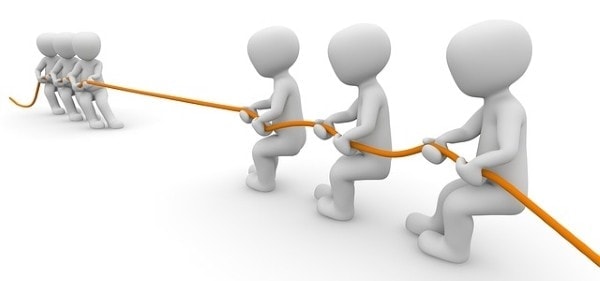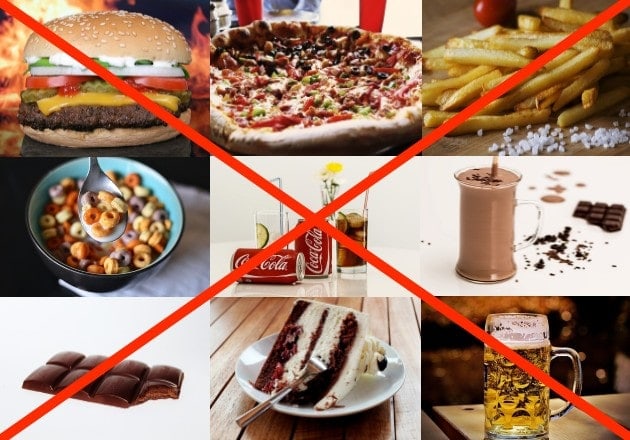
Low carb diets vs low fat diets
It seems like not a day goes by that we don’t encounter one of these low carb vs low fat diet debates on the internet.
The low fat diet proponents still believe that the high fat content of our diets is to blame for obesity and heart disease.
On the other hand, the low carb diet advocates are convinced that carbohydrates are the leading cause of all kinds of health problems, including diabetes and obesity.

And while, in recent years, the popularity of low fat diets is rapidly declining, the opposite is happening for low carb diets, with the number of people following them and the number of experts advocating them growing steadily.
Low carb diets work
Make no mistake. There is no denying that low carb diets can work for weight loss. Both scientific research and practical experience are pretty clear on this.
However, the problem is not the CLAIM that low carb diets work. The problem is the claim of HOW low carb diets work.
It’s understandable that you may ask “If low carb diets work, who cares about how exactly they work?”. Good point.
There is, however, a very good reason why it’s important to understand how low carb diets work: because it will make you realize that you can CHOOSE to go on a low carb diet, but that you don’t HAVE TO.
How “experts” claim low carb diets work
Most people believe that low carb diets help with weight loss because they result in lower levels of insulin in the body.
The rationale against higher carb diets goes something like this: You eat carbs, your insulin levels go sky high, fat loss comes to a halt, fat storage is at full throttle and, even with caloric restriction in place, the body will somehow increase its fat stores.
With the same line of thinking, if you avoid eating carbs, insulin remains low throughout the day which, in turn, allows fat to be mobilized and oxidized at a faster rate, leading to quick and easy fat loss without the need for a calorically restricted diet.
This is called the “carbohydrate-insulin hypothesis of obesity” and is what “experts” like Gary Taubes and Jason Fung are basing their claims on.
Sadly for them, this is not how it works.

You see, the insulin hypothesis of obesity has been proven to be wrong in research over and over and over again.
In fact, recent research published in the journal of the American Society for Nutritional Sciences states that: “lowering the glycemic load and glycemic index of weight reduction diets does not provide any added benefit to energy restriction in promoting weight loss in obese subjects.”
Yes, it’s true that your body’s insulin production goes up when you eat carbs (it also goes up when you eat protein, by the way) and, yes, insulin is an anabolic hormone of which the effects include the inhibition of lipolysis and the increase of lipogenesis.
But so what?
Take a step back and look at the bigger picture: Eating is anabolic! Throughout the day, you will be going through several periods of anabolism (when eating) and catabolism (when not eating).
During the anabolic periods, you will be building muscle and storing fat (more of the former, if you’re doing it right), while, during the catabolic periods, you will be burning fat and breaking down muscle (again, more of the former, if you’re doing it right).
Provided that you are in a net catabolic state (i.e. in an energy deficit), you will be decreasing your body’s energy stores (hopefully, the fat stores).
A couple of things also worth noting are that the ingestion of dietary fat alone can suppress the breakdown of body fat and that the body can store fat even when insulin is low via the action of a compound called Acylation Stimulating Protein (ASP).
How’s that for an evidence-based argument against the insulin hypothesis?
How low carb diets ACTUALLY work
So how do low carb diets actually work?
Well, simply put, they work by helping you decrease your energy intake and increase your energy expenditure!
There are a few reasons why this happens, the main of which are the following:
- Low carb diets are, almost always, high in protein
Low carb and ketogenic diets may independently help suppress appetite
Low carb and ketogenic diets can cause a massive initial water weight drop, which may improve dietary adherence
Low carb diets usually place more restrictions on tasty, easy-to-overeat, energy dense foods

Let’s look at our list above in a little more detail!
1. Low carb diets are, almost always, high in protein
Low carb diets are, usually, high protein diets, since, with the exception of a few things, such as oils, butters, nuts and avocados, most foods that are low in carbs happen to be high in protein.
Think about it: what would you eat if you were trying to avoid carbs? You would probably go for more meats, eggs, fish, protein powders and, maybe, some dairy – all of these are super high in protein!
And, as we’ve talked about before:
- Taking in enough protein will help you keep your metabolic rate higher and will minimize losses in muscle mass.
- Protein is the most thermogenic of the three macronutrients, which means that eating more protein will result in more calories being burned for digestion and absorption.
- Protein is the most satiating of the three macronutrients, which means that you’ll feel full for longer when eating protein at every meal and will be less likely to overeat.
So you can see how eating lots of protein can help you increase your energy expenditure while decreasing your energy intake.
2. Low carb/ketogenic diets may independently help suppress appetite
Despite the claim that low carb diets can curb your appetite only through the associated higher intake of protein, research from the journal of the American Society of Clinical Nutrition as well as research from the journal of Obesity Reviews suggests that low carb and ketogenic diets may have appetite suppressing effects independent of those of the high protein content of the diet.
Low carb diets (and their higher fat content) may also help some people experience increased satiety and less cravings as well as more stable energy throughout the day due to slower gastric emptying and better blood glucose control.
In practical terms, the above mean that low carb diets may help you eat less and move more!
3. Low carb diets can cause a massive initial water weight drop, which may improve dietary adherence
As we’ve seen in recent research from Dr Kevin Hall’s lab which was published in the Journal of the American Society of Sports Nutrition, a low carb or a ketogenic diet can cause a massive initial drop in body weight, which is the result of a reduction in water weight.
This reduction in body weight, although not accompanied by a reduction in fat mass of similar magnitude, is enough to give a psychological boost to most people which, in turn, increases dietary adherence and results in lower subsequent energy intake.
4. Low carb diets usually place more restrictions on tasty, easy-to-overeat, energy dense foods
When you are cutting out carbs, you’re not just removing a couple of food items from your diet. You are removing everything that contains wheat, rice, oats, barley, beans, legumes, fruits, sugar, pasta, potatoes and, even, dairy.
Some of the tastiest, most energy-dense foods will be removed from your diet, including:
- pizzas, burgers and fries
- cereal – a.k.a. candy for breakfast
- chocolate, cakes, ice cream and other confectionery
- sodas, juices, milkshakes etc.
- most alcoholic beverages

See where this is going?
Unless you are seriously screwing up by eating way too much fat, cutting carbs almost “forces” you to reduce your intake of calories!
Conclusions and recommendations
What we would like you to take from this article is not that one diet works while another doesn’t.
Instead, we want you to understand that any diet which helps you achieve and sustain a caloric deficit in the long-term will result in weight loss.
Diets that manage to do this are, usually, diets which are not overly restrictive, are based primarily on minimally-processed, micronutrient-dense foods and which contain sufficient amounts of protein.
So build your diet around lean meats, fish, fruits, vegetables, nuts, healthy fats and dairy, make sure you aren’t overeating the above, maybe add in some exercise and you’re good to go!









Leave A Comment